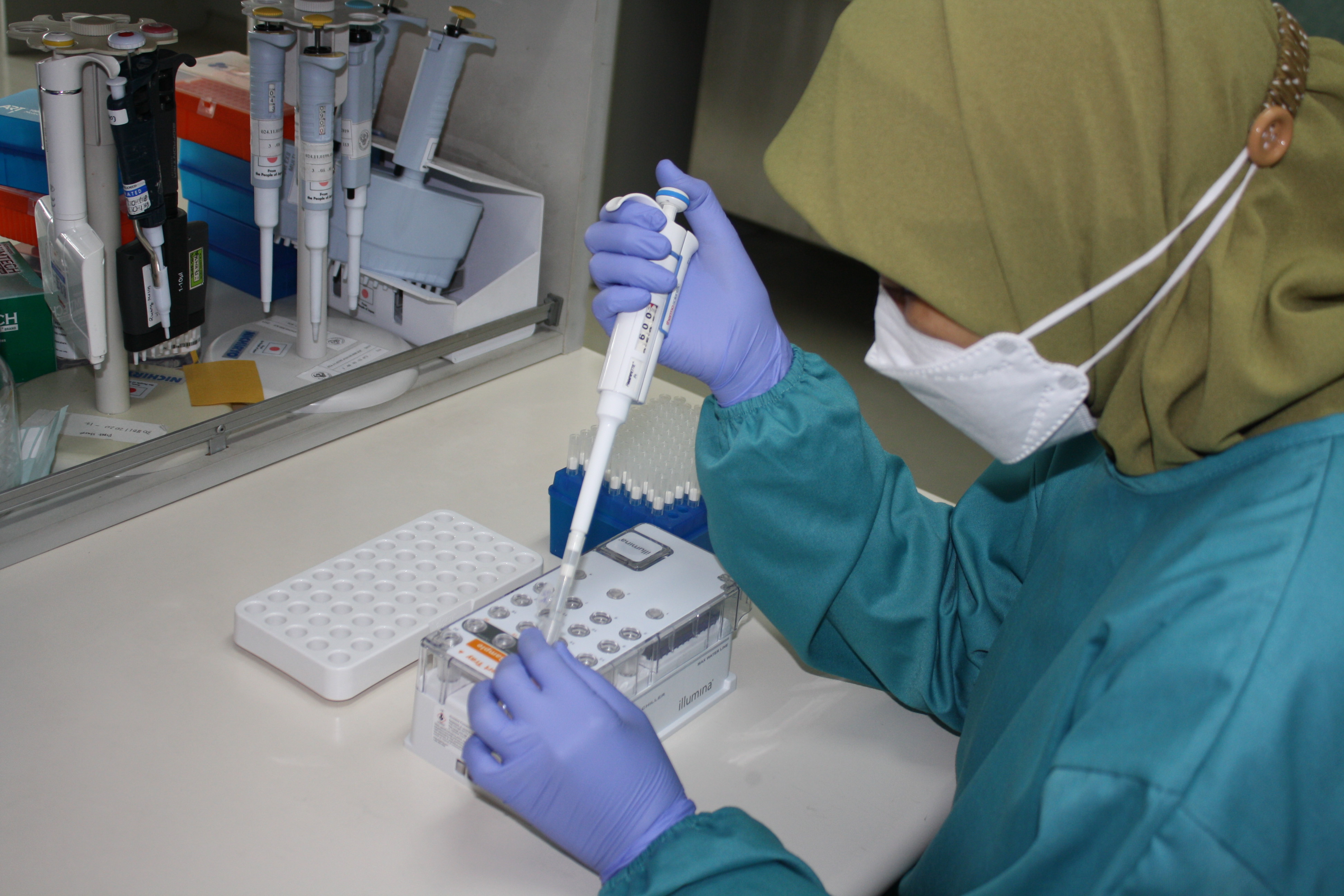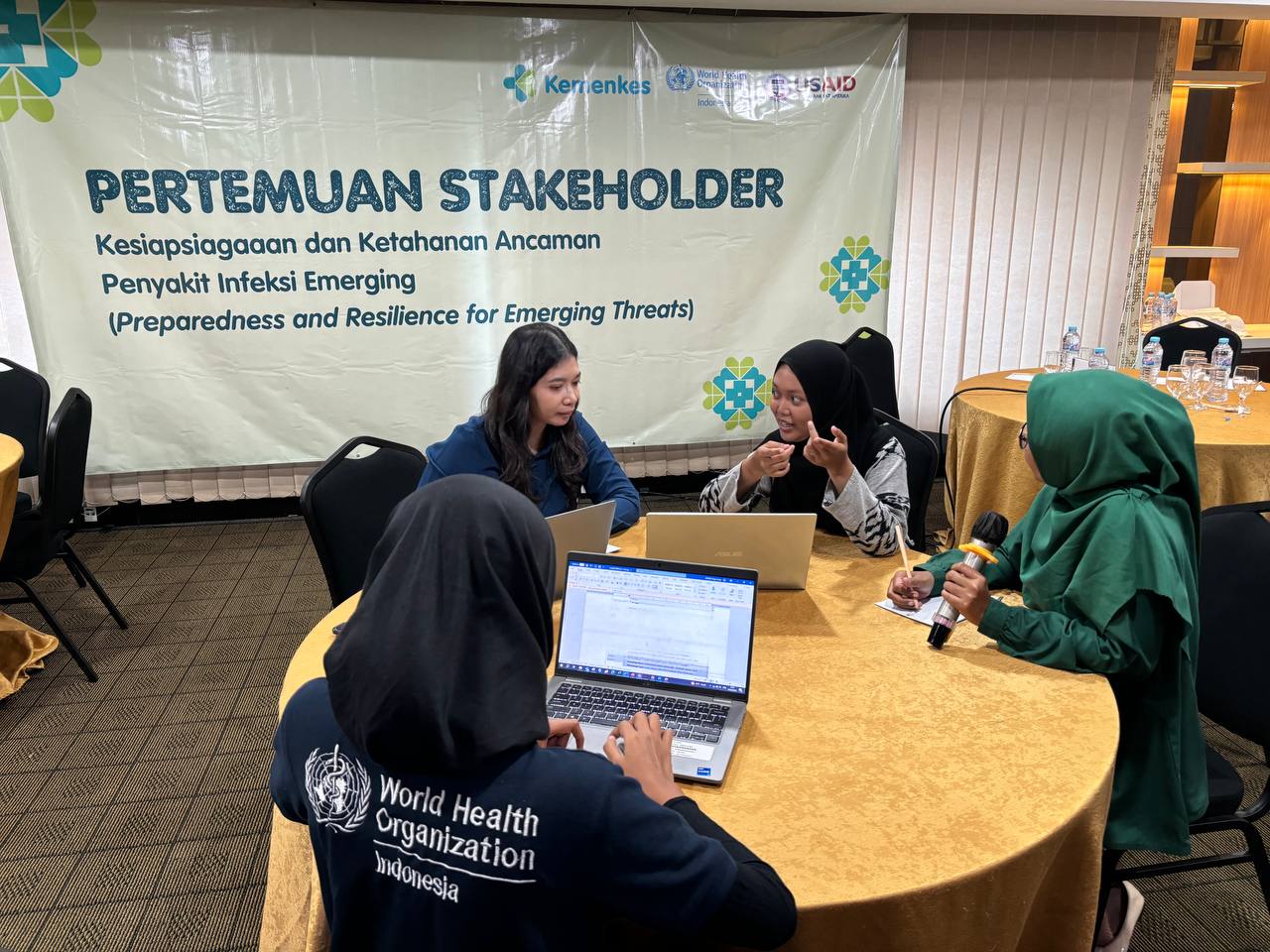
On 6–7 June 2024 the World Health Organization (WHO) and national and international partners conducted a stakeholder meeting in Jakarta, Indonesia on strengthening preparedness and resilience for emerging health threats (PRET), with a focus on emerging infectious diseases (EIDs). The meeting was followed by a five-day training of trainers’ workshop on EID hospital preparedness and a national meeting with health workers from 36 provinces on the WHO operational framework for PRET.
EIDs such as MERS-CoV, avian influenza, mpox and Nipah virus have in recent years caused significant outbreaks in one or more countries globally. Some 60% of EIDs are zoonoses, which every year cause an estimated 1 billion cases of illness and millions of deaths. In 2023 Indonesia reported cases of several EIDs, including COVID-19 and mpox. Avian influenza continues to be endemic among the country’s poultry.
Participants of the 6–7 June meeting included representatives of the Ministry of Health, the Ministry of Agriculture, the Ministry of Environment and Forestry, the National Disaster Agency (BNPB), the Coordinating Ministry for Human Development and Culture, and the Ministry of Home Affairs. This was in addition to key members of surveillance, community protection, clinical management and access to medical countermeasures working groups.

Group work session during stakeholder meeting on preparedness and resilience for emerging threats (credit: MoH Indonesia)
On the first day, participants discussed Indonesia’s current operational framework for EIDs and the risk of respiratory pathogens of pandemic potential, guided by the WHO PRET initiative. Launched in 2023, the PRET recognizes that the same systems, capacities, knowledge and tools can be applied for groups of pathogens based on their mode of transmission.
On the second day, participants focused on vaccine deployment and access to and procurement of medical countermeasures. This was followed by a series of working group presentations on how best to shift from one phase of the EID preparedness and response cycle to the next, covering five key pillars: emergency coordination, collaborative surveillance, community protection, clinical care and access to medical countermeasures.
“Multisectoral collaboration is key to increasing Indonesia’s capacity to prevent, detect and respond to potential public health emergencies of international concern,” said dr Achmad Farchanny Tri Adryanto, Director, Surveillance and Health Quarantine, Ministry of Health, Government of Indonesia. “Adopting and adapting the WHO PRET initiative is therefore essential”.
The two-day stakeholder meeting was followed from 10–14 June by a five-day training of trainers’ workshop. The workshop aimed to strengthen hospital preparedness planning, case management, infection prevention and control, and specimen handling, among other key areas of work. A total of 28 health workers from 14 EID hospital network facilities participated in the training, which was delivered through interactive discussions, hands-on activities and table-top exercises.
Later in the month, from 25–27 June, the Ministry of Health and WHO convened a national meeting with health workers from 36 provinces, where the WHO operational framework for PRET was disseminated. The meeting also deliberated on EID risk mapping, as well as the risk of EIDs related to international travel, including for the Hajj.
“Working collaboratively to minimize the risk of pathogens spilling over from animals and the environment does not mean merely acknowledging the need for working beyond human health. But, actually using the power and platform of the human health sector to advocate for the animal, wildlife and environmental health sectors,” said David Stanton, Deputy Health Director, USAID Indonesia. “A gram of prevention is worth a kilogram of cure, and we should continue investing in prevention and preparedness efforts and capacities in Indonesia as the diseases know no boundaries.”
Each activity will support Indonesia’s ongoing efforts to strengthen health security, reflected in the successful conclusion of the country’s second Joint External Evaluation of International Health Regulations core capacities in October 2023. They will inform the country’s next National Action Plan for Health Security, which will come into effect in 2025, and will complement the forthcoming One Health Joint Plan of Action.
These activities were supported by the US Government through USAID.
Written by Endang Widuri Wulandari, National Professional Officer (Epidemiologist), WHO Indonesia
